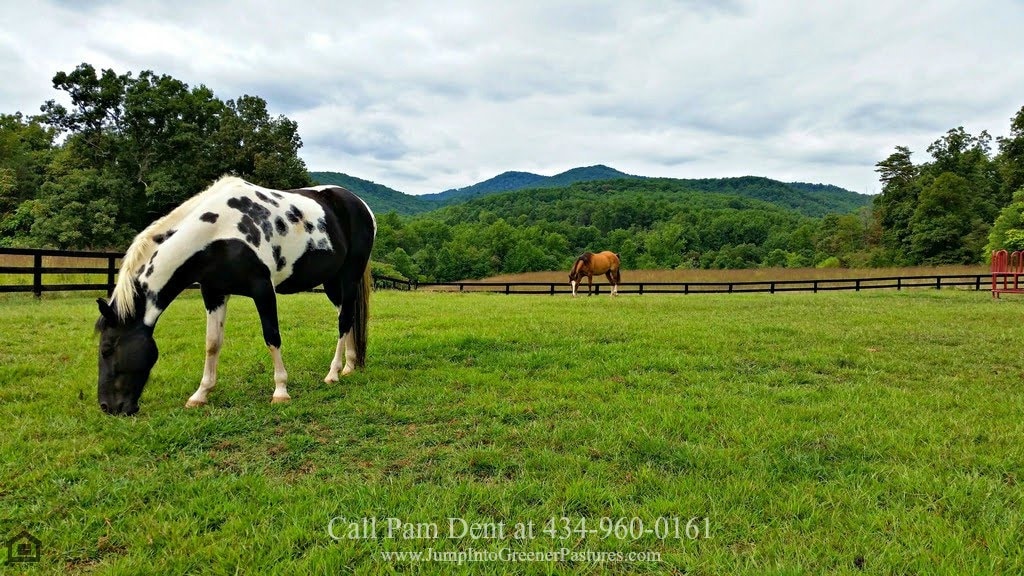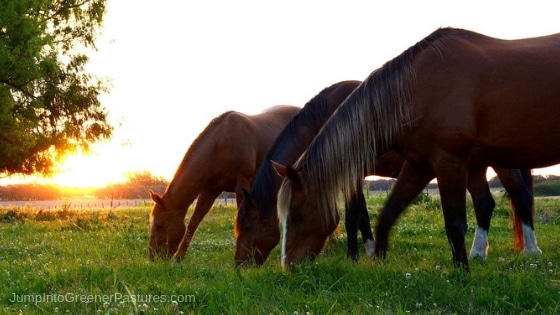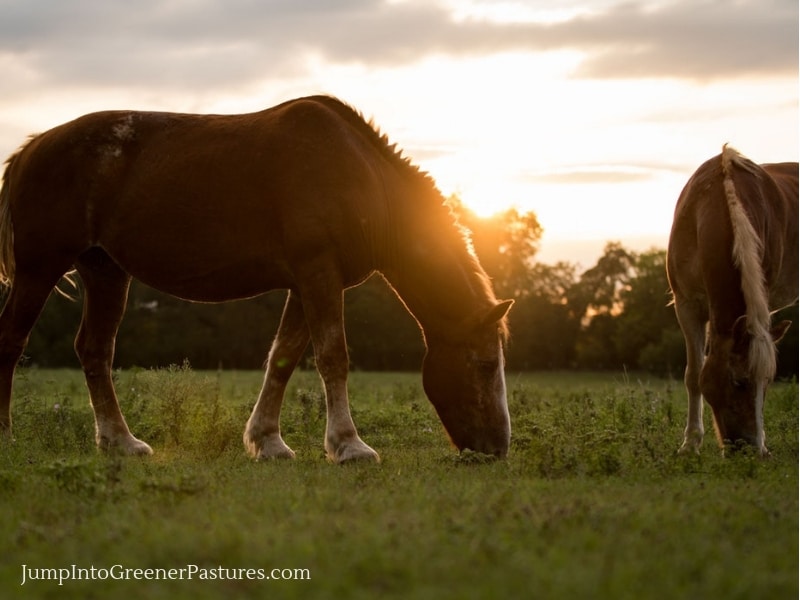Buying an Equestrian Property? Don’t Overlook Soil Quality
It can be difficult to find the perfect piece of land for managing horses. However, it is possible to know more about critical factors, such as soil quality, that can impact the health of horses and the management of a property, including outbuildings and pasture. Buyers who do not pay attention to soil quality may have a more difficult time with horse management and may have to supplement feed with additional minerals and chemical options, as mineral-rich soil often equates to better foraging options.
Whether you currently own a farm or are in the process of searching for one, remember that the land itself is a consideration beyond location, acreage, and price. Especially if you are planning to grow horses, the vegetation, soil, water, and bedrock that serve as the foundation of the top layer of the ground affect the overall health and strength of your horses.
Considering that, where do you start to ensure that your horses get the most benefit from the land they live on?
Soil Quality Is Important
 Soil quality can be easily overlooked as those looking for equine real estate draw up their wish list for a property. However, this factor can be important for a number of reasons. Some may want to have quality pasture for their horses and this is dependent upon the type of soil and the grasses that may be able to grow on a particular soil type. In addition, some soil types, such as a loamy soil can be problematic for paddocks when it rains.
Soil quality can be easily overlooked as those looking for equine real estate draw up their wish list for a property. However, this factor can be important for a number of reasons. Some may want to have quality pasture for their horses and this is dependent upon the type of soil and the grasses that may be able to grow on a particular soil type. In addition, some soil types, such as a loamy soil can be problematic for paddocks when it rains.
It may be necessary to have different soil types, such as a well-drained soil with gravel for areas such as confinement areas or buildings. The type of soil in an area can make for fewer issues with mud and for a better pasture growth environment. Horse management becomes easier with the right type of soil in the right location.
Vegetation – A Clue to Soil Quality & Drainage
Before examining the soil, there can be clues in the vegetation as to the amount of water in an area and the type of soil drainage. The types of plants growing in an area can indicate a wet and marshy area. Plants such as hardhack, rushes, sedges, and skunk cabbage often grow in wet areas that are not suitable to use as a pasture. This can be important when creating a layout for buildings and pastures for horses or other animals.
The types of shrubs and trees that grow in an area are often dependent upon soil type and prospective buyers can use the existing vegetation to determine whether or not the property is suitable for one’s purposes. Additionally, anyone selling a farm or equestrian property should be aware of all of the various types of trees and shrubs on the property to address any buyer questions or concerns. More information about the type of soil required by different plants can be found at the conservation district, extension office or local library.
Desirable Soil Features & Qualities
Those checking out a site for their horses may want to take a soil sample. Costs for the test are minimal, when a charge exists. It may be necessary to send in multiple sample for analysis, depending on the previous purposes of the land. If the soil is lacking in certain nutrients needed for horses, it is easier to make changes to chemical management rather than attempting to alter the physical management of soils and grasses.
Good outcomes from positive soil samples are often better for horses raised on high phosphoric soils. Owners may want to look for the presence of natural springs and big trees as this can be indicative of high phosphorus levels and mineral-rich water. Soil that retains excessive amounts of water does not make for strong hooves. Owners want to look for soil that is nutrient-rich and that drains well to support the health of their horses.

How do you ensure that your horses get the most benefit from the land they live on?
First, take a soil sample and have it tested. The cost for testing will depend on how many facets of your soil you want to be analyzed and how many different samples you take.
Once the sample or samples are analyzed, you will receive a computer printout detailing the levels of nutrients present in your soil, including phosphorus, calcium, sulfur, the PH measure of acidity, and potassium. If your farm has been pieced together from an older farm and additional land that might not have been used previously for livestock, take samples from different portions of the farm.
Doing so will keep you from spending money on fertilizers that you do not need on the parts of your farm that are already blessed with minerals. It is also best that once you have the initial soil test done, you continue to monitor the nutrient levels every three to four years, and on land managed, for every two years.
Just like humans, horses also need basic levels of certain minerals and vitamins on a daily basis to maintain their health. When horses graze, they get some of those nutrients from the soil via the grasses that they eat.
If you are planning to grow horses in a horse farm, you must be aware of two nutrient requirements. The first is the nutrient requirements of the crop, and the other the nutrient requirements of the horse. Those two are not always the same.
The chemical management and additives to the grasses are far from the only option that you must consider. Some horse farmers think that they can balance their horse’s ration by feeding the grass. That is not true. The soil will not give the grass 100% of everything put on the soil, and it’s not economically efficient. If the soil is already rich enough to support good growth, you are only wasting your money putting more nutrients on the soil. If you self-impose an imbalance on the soil, it will only affect the crop and the horses.
If you have worked with your soil and the crops being produced are just enough, yet your horses are still lacking nutrients, you can do an analysis on the hay or pasture and find out what the horses are eating. You also need to make sure you are familiar with the nutrition information on any packaged feeds.
Beyond Soil Sampling
Soil sampling is the first step, but it is not the only step you will take if you want to produce the strongest horses possible in your farm. Prospective buyers of horse farms need to understand that not every piece of property is ideal for raising horses.

If you understand your farm and understand your nutrients, you can raise a good horse anywhere if you know the contents of your grass, hay, and what you are feeding them. Hence, when searching for a horse farm, make sure that you do not only look at what can be seen by the naked eye, but everything—from barns to bedrock. It’s good to ask for topographical maps detailing the types and depths of limestone under the surface, water and drainage patterns, prevalence of sink holes, and other factors that might affect the equine athlete.
As you evaluate a possible horse farm to purchase, look at the lay of the land. Big trees usually equal good land for raising horses. This is because trees benefit from high phosphorus levels in soil.
Other than trees, sinkholes also indicate the presence of caverns that are made of mineral-rich rock. The presence of natural springs is also a tip-off. Limestone bedrock usually forces water to travel across its layers, collecting minerals as it moves. When it reaches the surface in the form of natural springs, the result is clear and rich water. Remember though that too much water either sitting in a creek bed or retained in soil is bad, as wet hooves are not strong hooves.
Lay of the Land
Not everyone can be lucky enough to find or buy the perfect land. But if you decide to grow horses on a farm, you need to understand what the limitations are and make the soil more favored for the plants that you are to produce.
Soil is a manageable resource. When looking for a horse farm, don’t go for steep hillsides or boggy bottoms, but something that rests in between. Also, consider the logistics of the site, the size of the land, and the slopes.
Questions about buying or selling equine real estate? Please contact me… I’m glad to answer your questions.
Source Attribution: Thank you to our guest blogger Dylan Snyder of The Snyder Group Real Estate in Jupiter FL.

 Pam Dent
Pam Dent
Leave a Reply